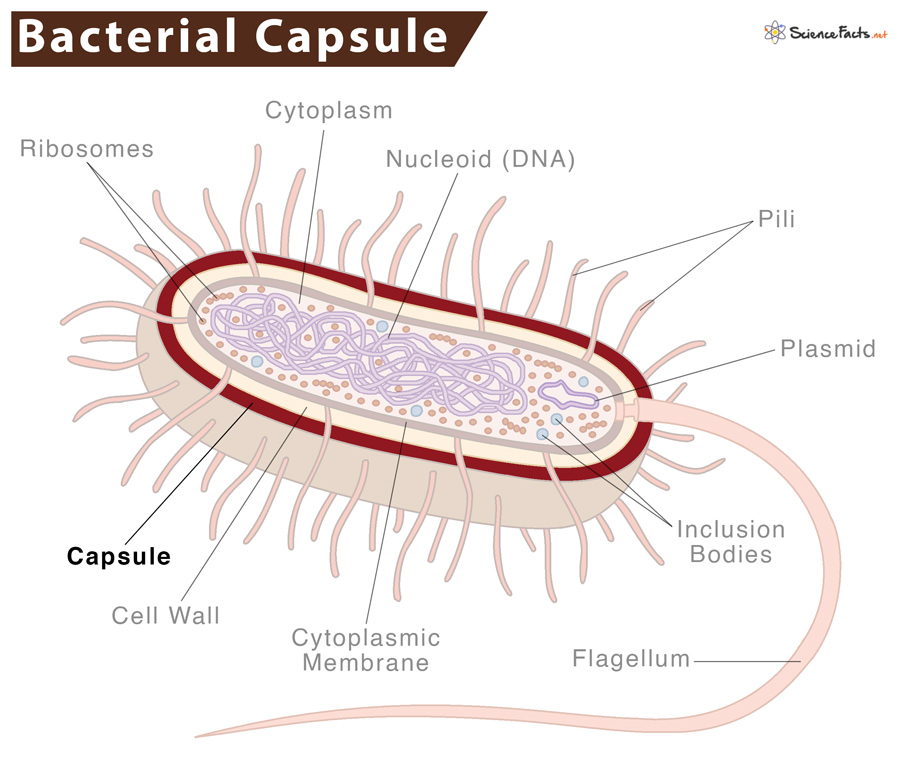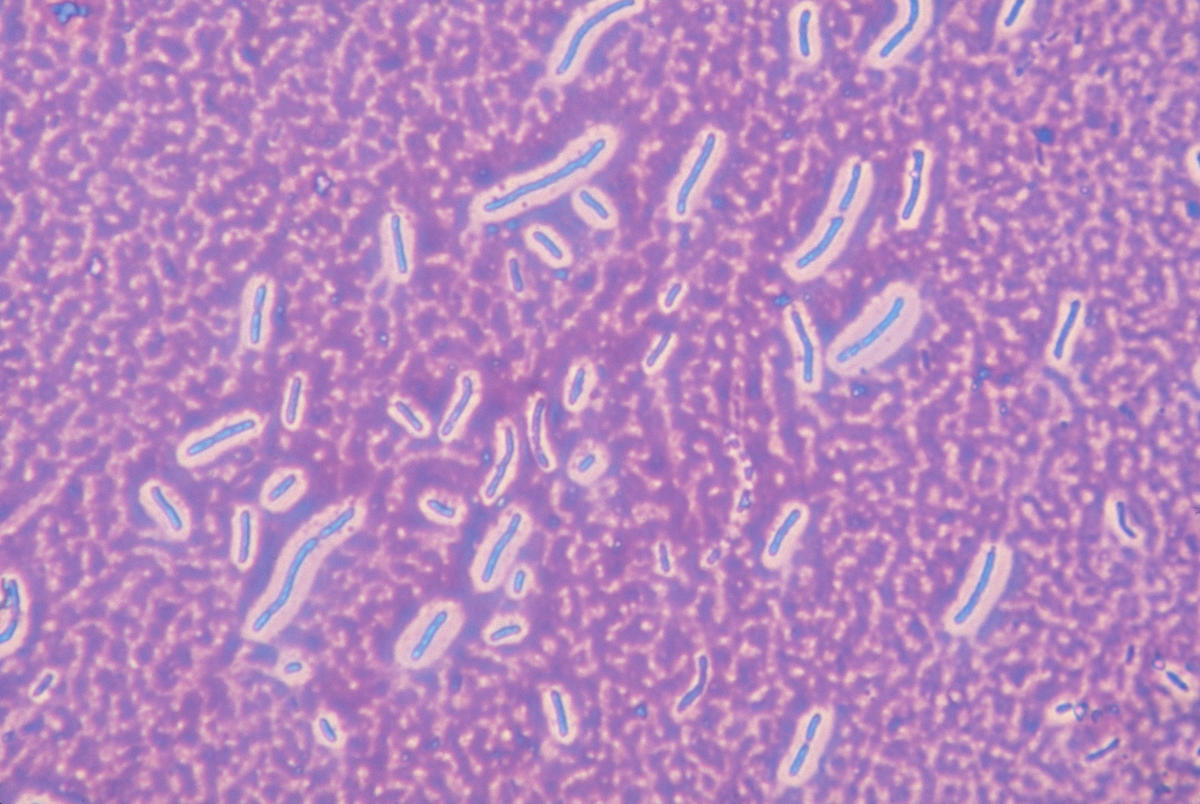Bacterial Capsule
A bacterial capsule is a viscous, gelatinous layer or envelope that surrounds the cell wall of some bacterial cell. It provides bacteria the ability to cause disease (virulence) in the host organisms they reside, making them pathogenic. Bacterium carrying a capsule is called capsulated.
They exist in both gram-positive and gram-negative bacteria. The capsule is immediately above the murein (peptidoglycan) layer of gram-positive bacteria such as Streptococcus pneumonia. In gram-negative bacteria such Haemophilus influenzae, Neisseria meningitidis, Klebsiella pneumoniae, and Escherichia coli, capsules are found above the outer membrane (lipopolysaccharide layer).
How are Bacterial Capsules Visualized
They are usually visualized through a light microscope using a special dark stain, the India ink. The image below shows bacterial capsules at 1000x magnification.
The capsule appears like a mesh or network of fine strands under an electron microscope. When the thickness of the capsule is 0.2 µm or more, it is called a macro-capsule, and when it is less than 0.2 µm, it is a micro-capsule.
What Are They Made Of
Most bacterial capsules are composed of repeating polysaccharides where the monosaccharides are linked together by glycosidic bonds. However, other chemical substances like amino acid (peptide) and protein-carbohydrate capsules have also been found. Some bacteria, such as Bacillus anthracis, use poly-D-glutamic acid instead of polysaccharides for making capsules.
Capsules composed of single kinds of sugars found in Streptococcus mutans are called homopolysaccharides. If two or more sugars of different types are present in a capsule, as found in Klebsiella pneumoniae, it is called heteropolysaccharides.
Functions of Bacterial Capsule
Main Function
As discussed, capsules provide the virulence factor in pathogenic bacteria that can cause disease in the organisms they reside. Non-capsulated bacteria cannot cause disease.
Other Roles
1. Preventing Attachment: The capsule’s smooth nature and negative charge prevent the phagocyte from adhering to and engulfing the bacterial cells. Thus, they protect the cells from phagocytosis (anti-phagocytic) and destruction by the engulfing cells, the phagocyte.
2. Saving Engulfed-Bacteria from Neutrophils: They prevent direct access of lysosomal contents within the cell by preventing phagocytosis and thus cell lysis.
3. Preventing Cell-lysis by Complement Pathway: Capsule of gram-positive bacteria prevents interaction between complement proteins: C3b on the bacterial membrane, and CR1 on phagocytic cells, thus preventing cell lysis.
4. Preventing Cell Desiccation and Drying: Capsule contains water in considerable amounts and thus prevents the cell from drying out.
5. Growth and Multiplication: Capsules help bacteria adhere to host cells, which helps them to colonize by forming biofilms through multiplication.
6. Protection: Capsule, being hard, protects the cell from physical damage and external injury.
7. Source of Nutrients: Capsule supplies stored nutrition to the cell during low nutrient supply.
Clinical Significance
Bacterial capsules also serve some clinical significance.
1. Bacterial Identification: Capsulated bacterial cells can be identified by using specific antiserum against capsular polysaccharides. It also identifies capsulated bacteria by their smooth bacterial colonies.
2. Vaccine Development: Capsular polysaccharides of bacteria are used as antigens during the preparation of vaccines. Examples: Polyvalent (23 serotypes) polysaccharide vaccine of Streptococcus pneumoniae capsule and polyvalent (4 serotypes) vaccine of Neisseria meningitidis capsule.
FAQs
Ans. The capsule is composed of polysaccharides similar to those found in the host. Thus, the immune system does not recognize them as foreign.
-
References
Article was last reviewed on Thursday, February 2, 2023





